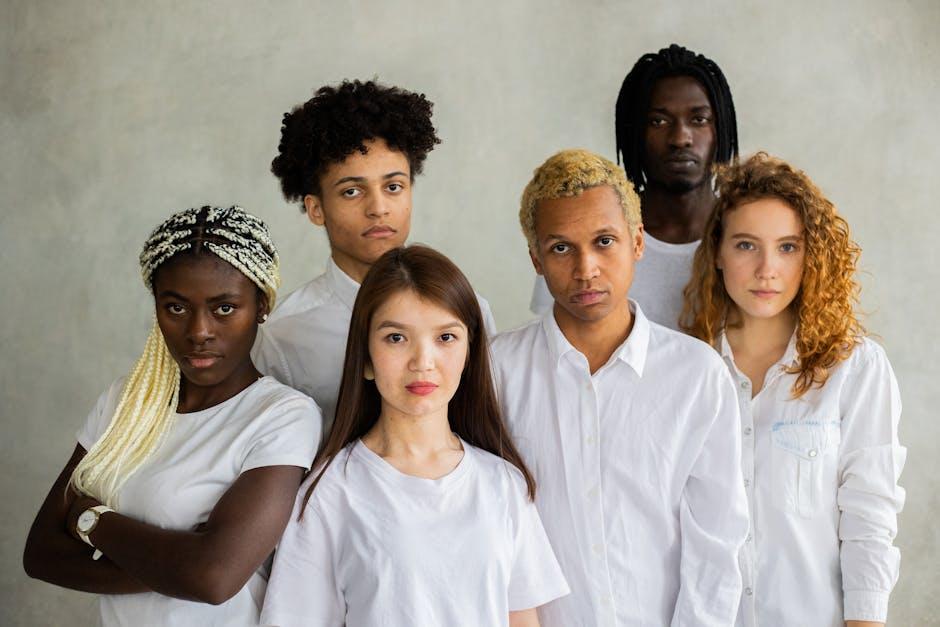In any relationship, be it personal or professional, the foundation of mutual respect is indispensable. Respect acts as the cornerstone upon which trust, understanding, and collaboration are built, and without it, even the most promising connections can crumble. It is not merely a passive sentiment but an active practice that involves acknowledging and valuing the perspectives, boundaries, and individuality of others. In this article, we will explore the pivotal role respect plays in nurturing strong, resilient relationships. By understanding the dynamics of respect, you can foster deeper connections, enhance communication, and create an environment where all parties feel valued and empowered. Whether you’re seeking to strengthen a romantic partnership, improve family bonds, or build a cohesive team at work, mastering the art of respect is essential for success.
Understanding Respect as the Foundation of Healthy Relationships
Respect serves as the cornerstone of every healthy relationship, influencing how partners communicate, resolve conflicts, and support one another. When respect is present, individuals feel valued, heard, and understood, which fosters a sense of security and trust. Without respect, relationships can become strained and unhealthy, often leading to misunderstandings and emotional distance.
To cultivate respect in your relationship, consider the following practices:
- Active Listening: Pay attention to your partner’s words and emotions without interrupting or judging.
- Empathy: Try to understand your partner’s perspective and feelings, even if they differ from your own.
- Boundaries: Recognize and honor each other’s personal space and limits.
- Acknowledgment: Appreciate your partner’s efforts and contributions, both big and small.
By embedding these practices into daily interactions, couples can create a nurturing environment where both partners feel respected and cherished.

Cultivating Mutual Respect through Effective Communication
In any thriving relationship, the ability to communicate effectively serves as a cornerstone for cultivating mutual respect. This involves more than just exchanging words; it is about fostering an environment where both parties feel valued and heard. To achieve this, consider integrating these practices into your daily interactions:
- Active Listening: Prioritize understanding over responding. This means giving your full attention, acknowledging the speaker’s emotions, and refraining from interrupting.
- Empathy: Put yourself in the other person’s shoes. Acknowledge their perspective, even if you don’t necessarily agree. This can bridge emotional gaps and foster trust.
- Non-Verbal Cues: Be mindful of body language, facial expressions, and tone of voice. These elements often communicate more than words and can either strengthen or undermine your message.
- Clarity and Honesty: Be clear and straightforward in your communication. Avoid ambiguity and ensure your intentions are transparent.
- Feedback: Offer constructive feedback, focusing on behavior rather than personal attributes. Encourage open dialogue where feedback is seen as a tool for growth.
By embracing these strategies, you can create a dynamic where respect is not just given but earned, paving the way for a robust and enduring relationship.
Practicing Empathy to Enhance Respect and Connection
One of the most effective ways to foster respect in any relationship is by practicing empathy. By putting ourselves in another’s shoes, we can better understand their feelings, needs, and perspectives. This understanding lays the foundation for a more respectful interaction, as it moves us away from judgment and towards genuine connection. Here are some key elements to focus on:
- Active Listening: Truly hearing what the other person is saying without interrupting or planning your response can reveal insights into their emotions and thoughts.
- Non-verbal Cues: Paying attention to body language and facial expressions can provide a deeper understanding of how someone feels beyond their words.
- Open-mindedness: Embracing diverse viewpoints without preconceived notions can broaden your perspective and foster mutual respect.
By cultivating empathy, we create an environment where respect can thrive, leading to stronger and more meaningful connections.
Overcoming Challenges to Maintain Respect in Long-term Relationships
In the journey of long-term relationships, challenges are inevitable. Whether it’s navigating through life’s unpredictabilities or balancing personal and shared ambitions, the key to maintaining respect lies in understanding and empathy. Open communication is essential; it creates a space where both partners feel heard and valued. It’s important to actively listen, acknowledging each other’s perspectives without judgment. This fosters a mutual respect that acts as a foundation for resolving conflicts.
- Set Boundaries: Clearly defined boundaries help in understanding what is acceptable, ensuring that both partners feel respected.
- Practice Gratitude: Regularly expressing appreciation for each other reinforces respect and strengthens the bond.
- Embrace Differences: Recognizing and valuing each other’s individuality can enrich the relationship and encourage respect.
- Apologize Sincerely: When mistakes occur, a genuine apology can heal wounds and restore respect.
Ultimately, respect is a continuous effort that requires dedication and mindfulness. By prioritizing respect, partners can navigate through challenges more gracefully, fortifying their relationship for the long haul.




